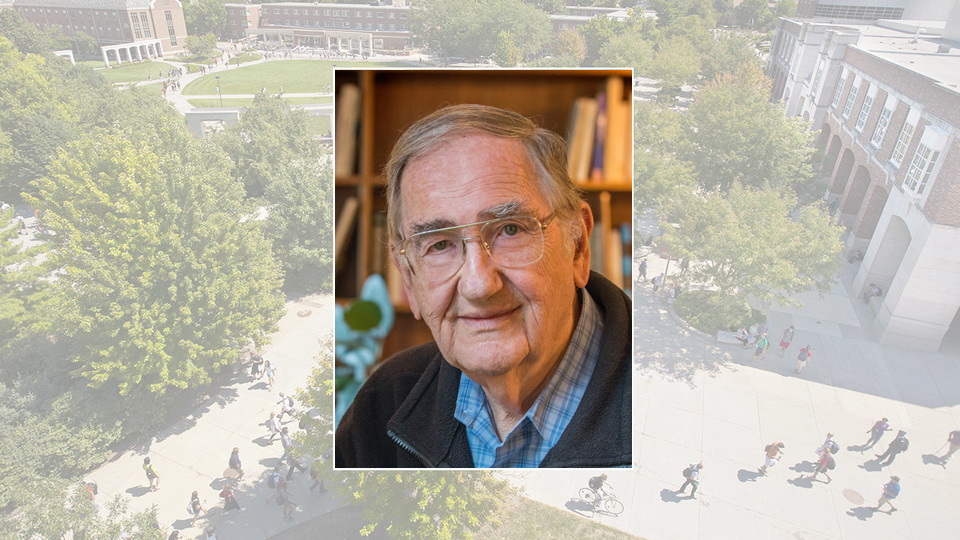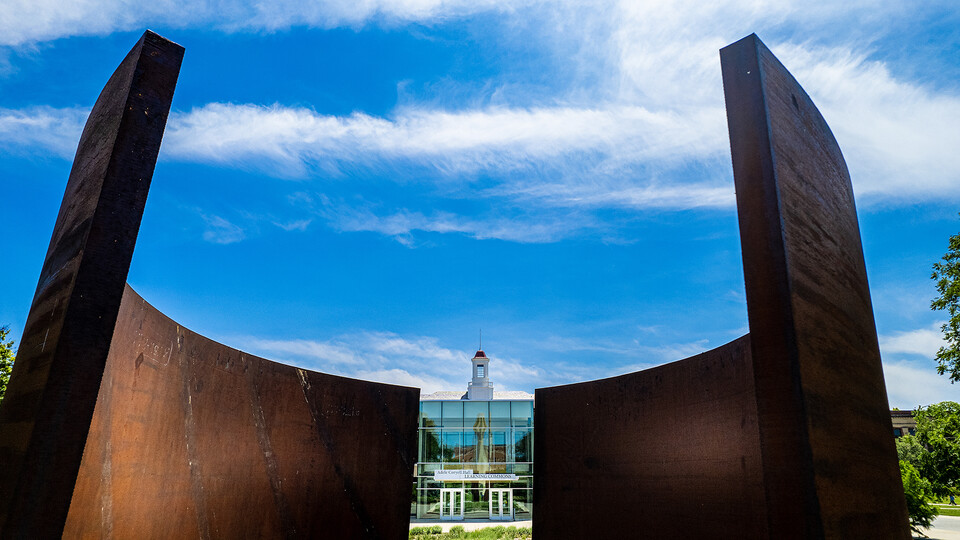
John Turner, 1938-2019, was Cotner Professor of Religious Studies and Charles J. Mach University Professor of Classics and History at the University of Nebraska–Lincoln.
John graduated from Dartmouth College in 1963 with a double major in mathematics and philosophy, earned a Th.M. in biblical studies from Union Seminary, and completed his Ph.D. at Claremont Graduate School, which he published in 1968 as the first modern edition of the Book of Thomas from the Nag Hammadi codices.
These codices (bound books, rather than scrolls) are part of the historically momentous collection of ancient literature found in 1945. One collection was found near the Qumran caves, in the Judean Desert near the northern shore of the Dead Sea. Our retired colleague Sidnie White Crawford is known around the world as an expert on these scrolls. The Nag Hammadi codices were found at roughly the same time in Nag Hammadi, a town on the Nile in southern Egypt. These books, written in Coptic, the latest version of the Egyptian language, reveal an alternative Gnostic Christianity, had long been restricted to a small number of European scholars for political reasons.
John was among the first to publish critical editions of these texts in 1973-1977, and a translation prepared for the general reader, the Nag Hammadi Library in English (Harper Collins, 1996). These texts have gone on to revolutionize our understanding of the development of Christianity, suggesting that the religion had a much broader and more diverse range of followers in its early centuries than had previously been thought possible.
The Gnostic tradition, in which philosophy, theology, and ethics are bound together into system divergent from traditional monotheism, was broad and complex. John specialized in the “Sethian Gnostic” tradition, in which Adam and Eve’s third son, Seth, plays a significant role in eleven of the 53 Nag Hammadi texts. His work defined our understanding of this position, and its relation to the development of Middle Platonic and Neoplatonic philosophical thought. Both philosophical movements contributed to the development of Christian theology, and Neoplatonism remains the primary philosophical underpinning of Western Christianity.
John directed his studies to the relation of Gnostic thought to ancient Greek thought, in which he and his colleague Kevin Corrigan (Emory University) have developed an understanding of the origins of Neoplatonism. He argued that Gnosticism plays such an important role in the Neoplatonic tradition as to be recognizable not only in ancient thought, but also in medieval, modern, and more recent versions of Neoplatonism.
In the course of his career, John was a member of the UNESCO “International Committee for the Nag Hammadi Codices”, based in Cairo, of the editorial board for the French language Nag Hammadi project based at Université Laval in Québec City, and has organized a large number of internationally significant conferences and colloquia on the Nag Hammadi codices, Gnosticism, and ancient Platonism.
He began at the University of Nebraska in 1976 as a member of the Department of History, and transferred to the Department of Classics and Religious Studies in 1984, teaching a broad range of courses. John was responsible for all religious studies courses for close to two decades, and was instrumental in forming the curricula for the minor, and eventually the major.
John was awarded the Outstanding Research and Creative Activity (ORCA) award from the College of Arts and Sciences and in 2003, he received the university ORCA award. His contributions to the University of Nebraska-Lincoln, college, and department have been manifold, and his influence has been immeasurable. As a teacher, he has touched the lives of thousands of students over his long career, bringing depth and excitement to the understanding of the relation of Christianity to philosophical ideas. When he was faced with the challenge dogmatism offers professors of religious thought, he was always kind, patient, and caring. Many individuals who have gone on to professions that demand empathy and understanding have been deeply influenced by his teaching and his personal example.
John was a warm and encouraging mentor to a wide range of scholars, always ready to offer good advice, or profound commiseration, as circumstances demanded. To honor his gifts to the university, the department has agreed that the extant fund known as the Cotner for Religious Studies Scholarship should be converted to the Turner-Cotner Religious Studies Scholarship, to be awarded annually to a promising student.
The mark John has made is indelible, an imprint of the ageless wisdom to which he devoted his life’s work.


